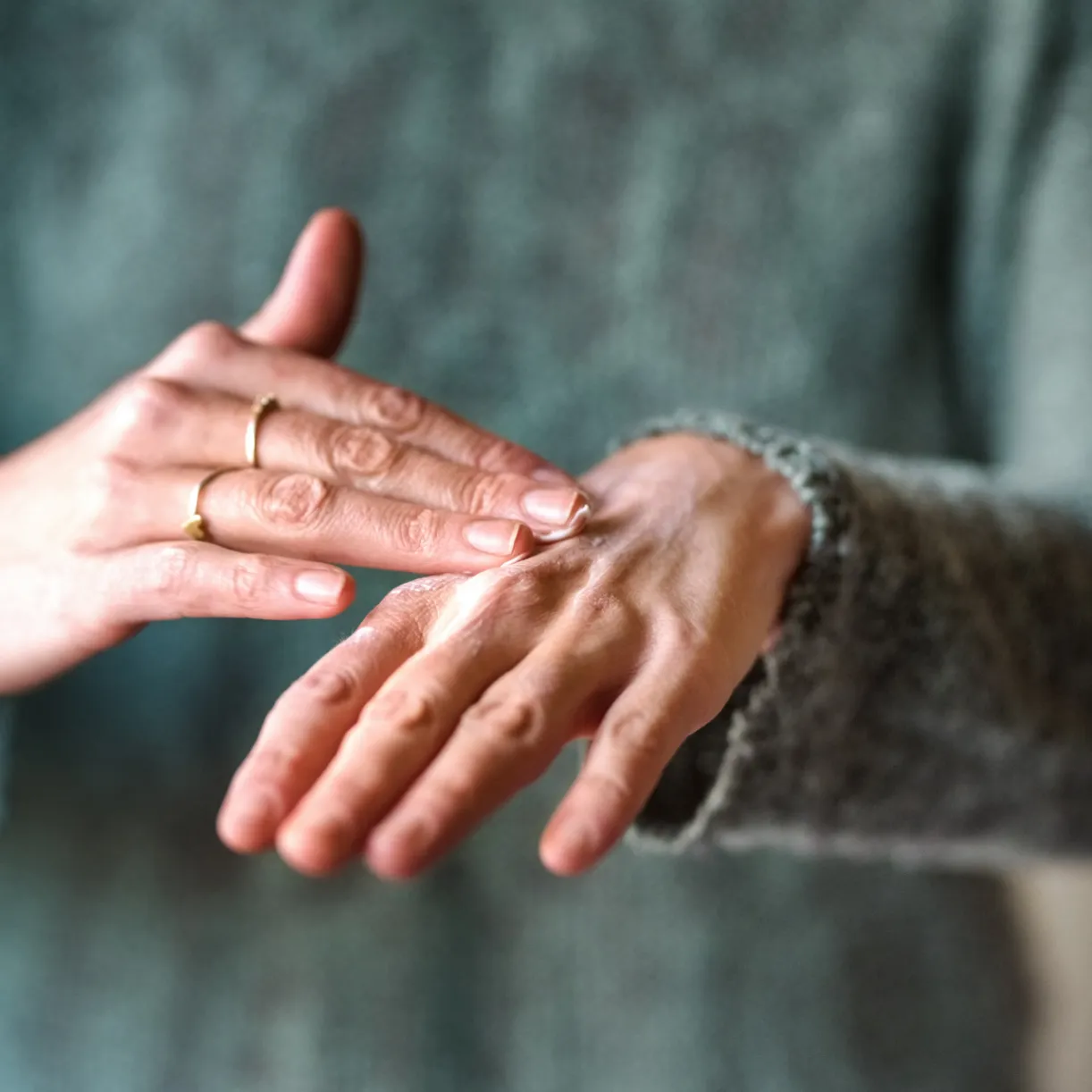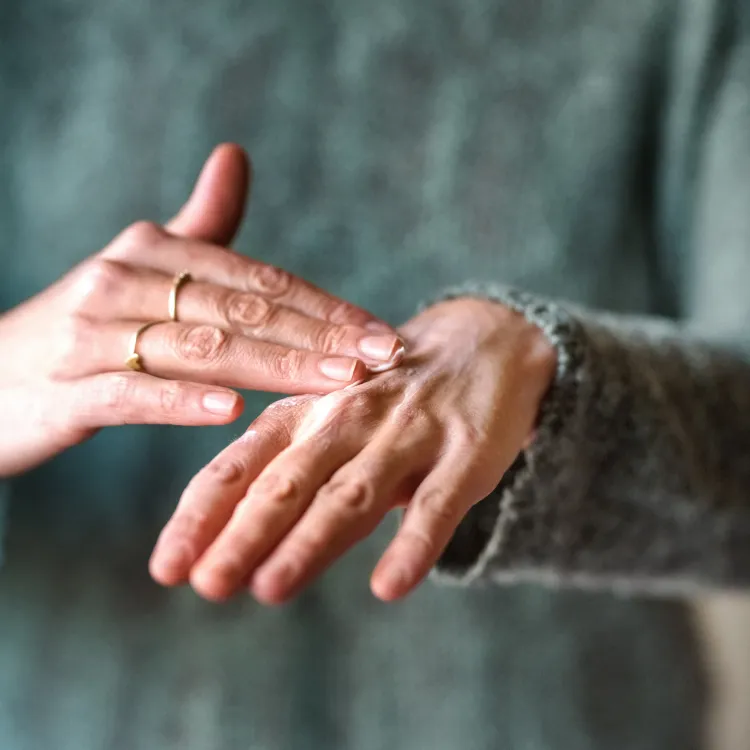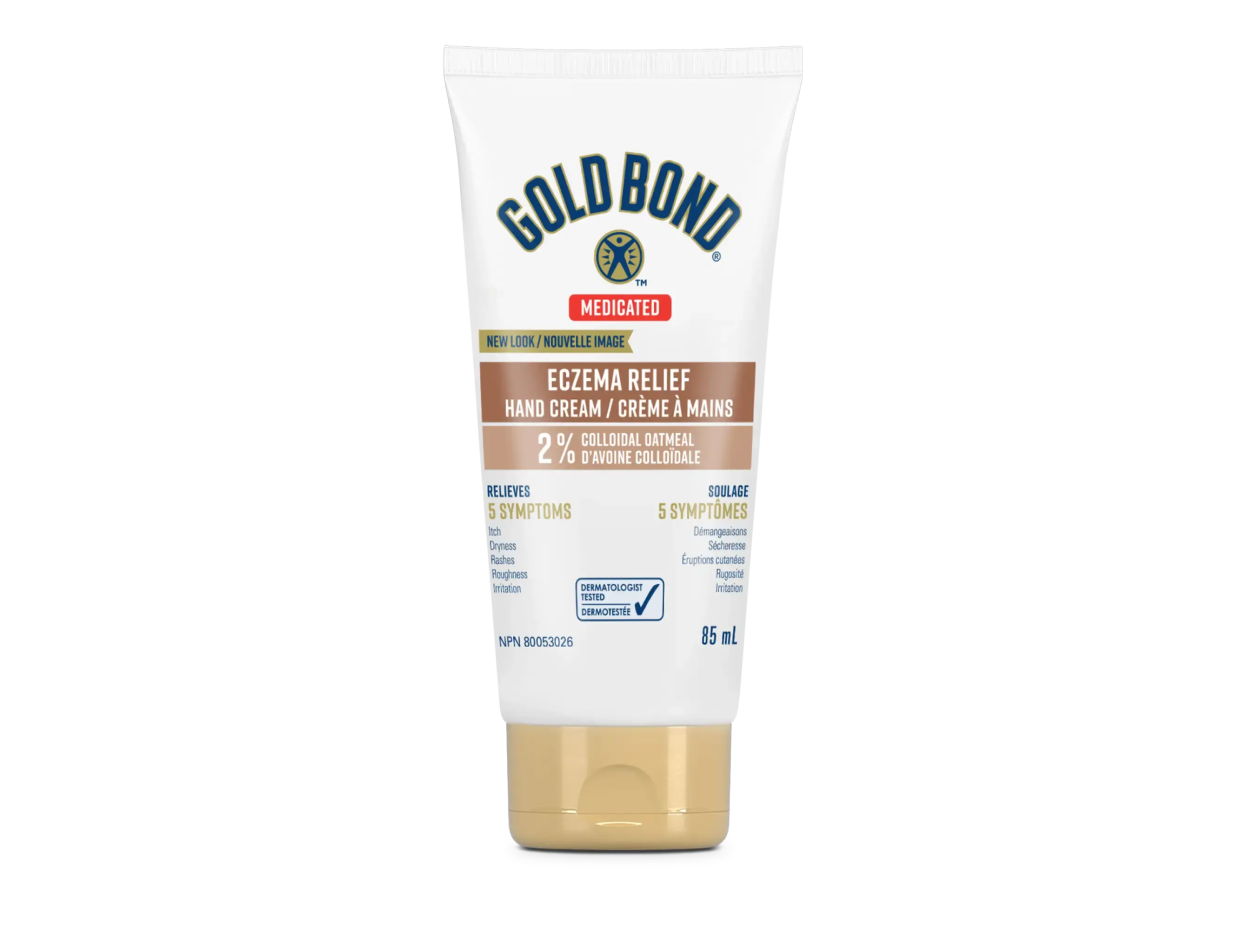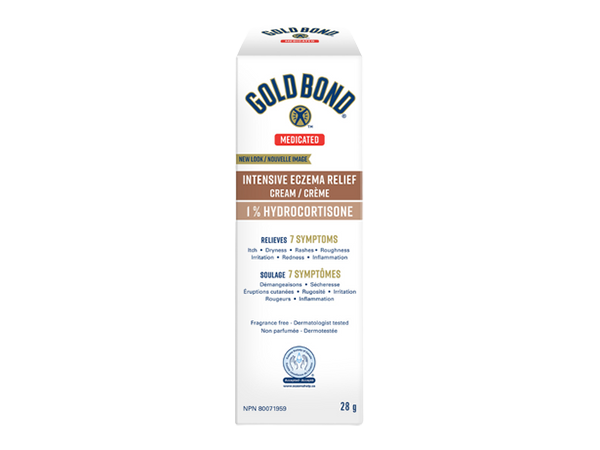What is eczema?
Eczema is an immunological disease, meaning it involves the immune system.3 With atopic dermatitis – the most common type of eczema – the immune system is overly sensitive and the skin barrier is weakened.3 This can cause your skin to react to even mild irritants or allergens. Rashes and itchiness are outward signs of inflammation that’s active underneath the skin.3
Unfortunately, eczema can affect anyone. It occurs equally as often in men as it does in women, and it affects people of all races and ethnicities.3 Most people start to experience symptoms in early childhood, but eczema symptoms can show up at any point in your life.4
Eczema symptoms
The main symptom of eczema is dry, itchy skin. You might experience:3
- A rash that is red, gray, brown, or purple (depending on skin tone)
- Scaly areas of skin
- Oozing or crusting
- Swelling
- Thickened skin
Your doctor can help determine whether you have eczema. And while the itch can be extremely frustrating – especially for young children – the good news is that there are ways to help ease your symptoms.
Eczema triggers
Researchers believe eczema is rooted in a combination of genes and triggers, with the most common being:
- Dry skin: If your skin gets too dry, it can become brittle and scaly, which can lead to an eczema flare-up.5 To prevent dry skin, try to moisturize at least twice a day.6 Avoid fragrances and use creams or ointments, which contain more oil.5
- Irritants: Lots of things we encounter every day can trigger eczema. Some of the most common irritants are metals, cigarette smoke, soaps and cleaners, fragrances, fabrics, and antibacterial ointments.5
- Stress: This can be a tough cycle to break — some people’s eczema gets worse when they’re feeling stressed, and dealing with eczema itself can be extremely stressful.5 There are no easy answers, but knowing about the different eczema treatment options could help you get some relief.
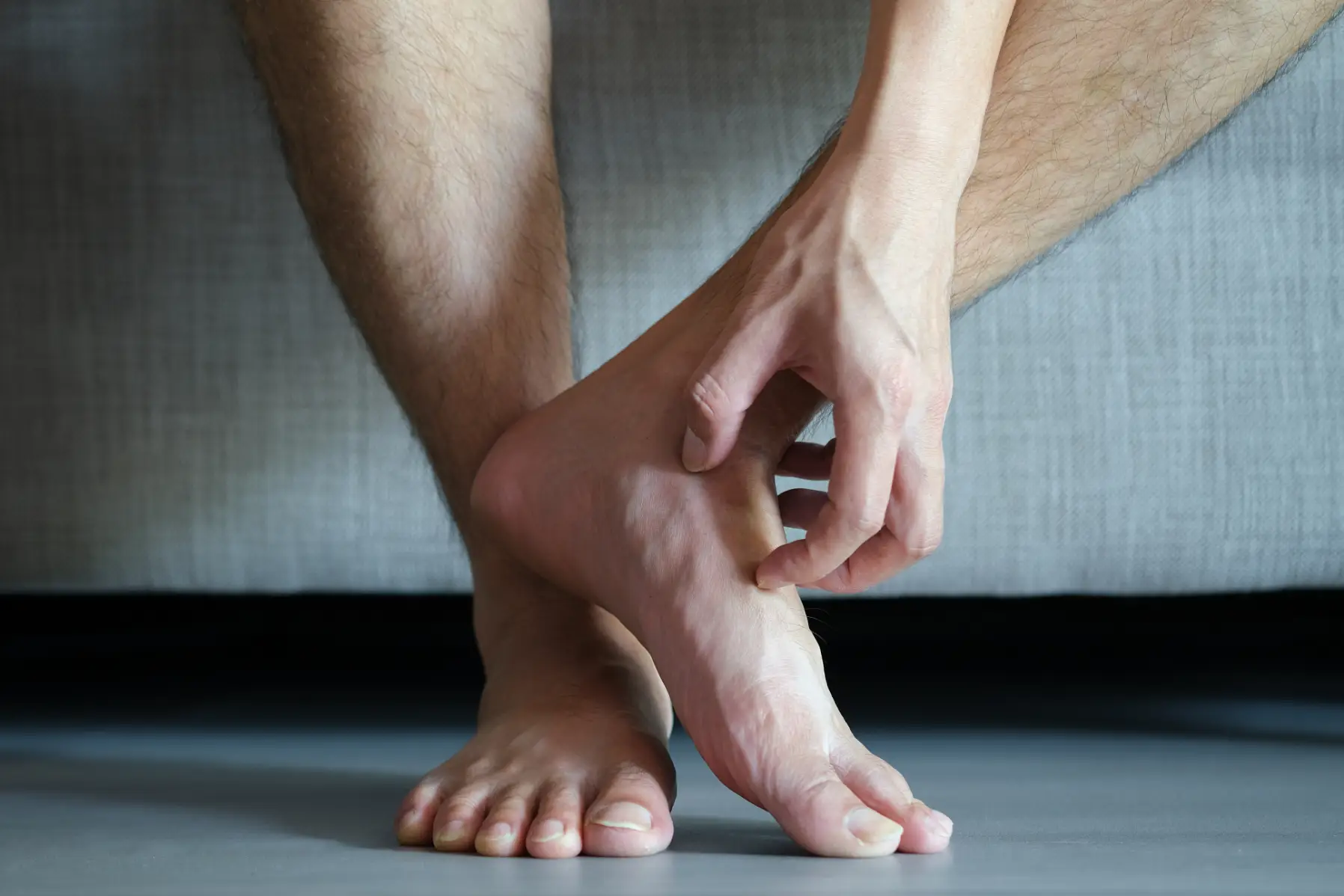.webp)
"One in ten people will experience eczema.1"
Emotional effects of eczema
The effects of eczema often go far beyond itchy, irritated skin. Whenever you experience the disease yourself or take care of someone who does, living with eczema is difficult.
Unfortunately, the emotional impact of eczema is too often overlooked. Living with the disease is confusing since the term eczema describes many kinds of itchy rashes that can look different on different skin types.3
Feelings of embarrassment and shame about the condition are common and can affect family and social life in the forms of depression, anxiety, and isolation.7 It’s crucial to address both the physical and emotional impact of eczema.7 Ask your doctor to refer you to a local support group or find others who have eczema by visiting the Eczema Society of Canada (ESC) website.
Tips for relieving eczema
Eczema symptoms do eventually fade, but you never know when the next one might appear. That’s why it’s important to work with a dermatologist or your physician to develop a long-term strategy for both treating rashes and managing skin in between flare-ups. For some relief, try these tips recommended by dermatologists.8
- Apply a cool compress: Soak a clean washcloth in cool water, then wring out water so the cloth is damp. Apply the cool compress to itchy skin. After removing the compress, apply moisturizer to the affected area.8
- Use colloidal oatmeal: Colloidal oatmeal helps relieve dry, itchy skin and can be purchased at most drugstores. You can try adding it to your bathwater, or use a moisturizer that includes colloidal oatmeal, for example: Gold Bond® Medicated Eczema Relief Cream.
- Soak in a bath and apply ointment afterwards: After soaking in a lukewarm bath, apply a thick layer of moisturizing ointment. When the skin is very itchy, an eczema-friendly ointment like petroleum jelly provides more relief than a cream or lotion.8
- Distract the patient: This tip is designed for children and includes activities like playing peek-a-boo and telling them a story. 8 But the same logic applies to eczema sufferers of all ages. Being engaged in an activity can help take your mind off itchy skin.
- Stay calm: This is another tip for parents, but it’s also a good reminder for all ages. Stress has been shown to cause eczema flare-ups, so do what you can to create and maintain calm.8
- Tap or pinch your skin (gently): Despite what you might have been told, a gentle pinch can actually reduce the itch. Just be sure to pinch near — and not directly on — the affected area.8
Fight eczema symptoms with Gold Bond®
If you or your loved ones are suffering from dry, itchy skin caused by eczema, get relief with Gold Bond Eczema Relief.
References
- National Eczema.org, editors. If You Only Read One Article About Eczema … Read This. National Eczema Association. Accessed November 21, 2022.
- Canadian Dermatology Association, editors. Public Education Awards - Canadian Dermatology Association. Accessed November 21, 2022.
- Eczema Exposed.com, editors. Understanding Eczema. Sanofi Regeneron. Accessed November 21, 2022.
- National Eczema.org, editors. What is Eczema? National Eczema Association. Accessed November 21, 2022.
- National Eczema.org, editors. Eczema Causes and Triggers. National Eczema Association. Accessed November 21, 2022.
- Mayo Clinic.org, editors. Atopic dermatitis (eczema). Mayo Clinic. Accessed November 21, 2022.
- Eczema Exposed.com, editors. Living with Eczema. Sanofi Regeneron. Accessed November 21, 2022.
- AAD.org, editors. HOME REMEDIES: WHAT CAN RELIEVE ITCHY ECZEMA? American Academy of Dermatology Association. Accessed November 21, 2022.
